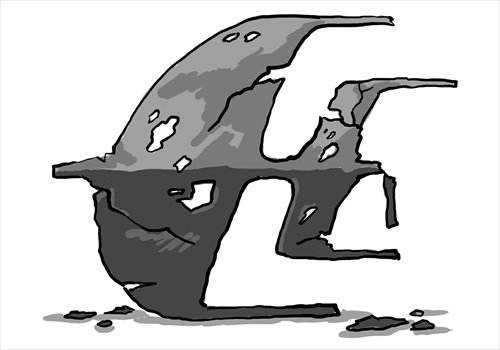Malaysians united in MH17 aftermath

Illustration: Liu Rui/GT
Nearly five months ago, as Malaysians woke up to the tragic and surreal news that one of national air carrier Malaysian Airlines' planes en route from Kuala Lumpur to Beijing simply vanished into thin air. The resulting search effort has still produced no result.
And then, disaster hit again. Just as we were moving out of the shadow of MH370, we were again rudely woken up to bombshell news, that flight MH17, flying on an established and widely flown air route from Amsterdam to Kuala Lumpur, had crashed in the eastern part of Ukraine controlled by the armed opposition.
The nation, like the world, was thrown into shock. We wallowed in despair. Traditional and social media alike were cluttered with helpless questions such as "why us again?" The unfortunate coincidence of having two civilian aircraft downed under mysterious circumstances was simply too emotionally overwhelming for many Malaysians.
And the ensuing callous international finger-pointing, with strong undertone of old-style superpower tussling, did not help alleviate the pain and suffering of the grieving family members of the victims, who ranged from Dutch to Malaysian. Nor did the wanton tampering with evidence at the sprawling crash site or the denial of impartial international investigative access to the scene.
And these latter, almost macabre scenarios, broadcast around the world in sporadic and amateur video footage, happened almost real-time in a supposedly civilized modern world.
Conscientious Malaysians and the worldwide community alike clamored for action and answers. The haphazard handling of the air crash investigations by the concerned factions in Ukraine was simply unacceptable. Nor was the avalanche of cacophonous calls for action that failed to be backed up by deeds.
There was, above all, an almost desperate yearning for leadership in this tragic matter, of somebody somewhere stepping forward to take charge.
Malaysian Prime Minister, Najib Razak, rightly called it as "a tragic day in what has already been a tragic year for Malaysia."
Najib did not hasten to react to hot-headed calls for action. Instead, he quietly worked out a deal with the armed Ukrainian opposition, such as that the much sought-after flight data recorder was to be handed over to the Malaysian authorities, the remains of the victims were to be transported to the Netherlands for autopsy before being returned to their home countries, and safe and unimpeded international access to the crash site was to be guaranteed. The first two parts of this deal have been successfully carried out, while the third remains at best intermittently fulfilled.
When Najib announced his plan, he was praised for statesmanship and pragmatism both internationally and domestically. Even the Malaysian political opposition commended the administration for pulling off this highly tricky deal.
As Malaysia is now undergoing a democratization process in its political evolution, with the ruling party and the opposition often bickering with each other, this rare show of national unity at a calamitous time is most refreshing for many Malaysians, and is perhaps testimonial to our desire for answer and consolation.
The series of air incidents involving Malaysian Airlines (MAS) inevitably sent its share price tumbling. Talks of MAS' privatization, reorganization and even bankruptcy were rife. But one thing is clear: Most Malaysians will continue to take MAS as their airline of choice.
As Malaysians, we fly MAS not so much out of crass jingoism, but because our hearts melt with the warm smiles of the multiracial cabin crews that in some way constitute a mini-UN. This reflects the spirit that binds the nation together in the wake of tragedy.
The author is a senior fellow with the S. Rajaratnam School of International Studies, Nanyang Technological University, Singapore. opinion@globaltimes.com.cn